- Details
- Written by Atanas Kostov

Preparation of copyright and business documentation for filming in Bulgaria. Protection of copyrights concerning films.
"IUSAUTOR" as a law office and in particular attorney Atanas Kostov have a long professional history, related to the copyright and business processes that concern the creation of a film - be it a documentary, a feature or a television series. Mr. Kostov as an attorney at law has also participated as a procedural defender in numerous cases that concerned disputes in the court over film copyright in Bulgaria.
On the topic "IUSAUTOR" can offer you the following legal services:
- Details
- Written by Atanas Kostov

Intellectual property in nano computer technologies.
1. Introduction.
For nearly 20 years, as a lawyer working in the field of intellectual property, I have been observing the development of computer programs in various fields, while at the same time naturally following the global leap in computer hardware, since it logically corresponds, as a technological level, to the development of the specific stage of programming - these activities go hand in hand, so to speak.
Over the past 10 years, my attention has turned to the so-called "quantum computers" and their predecessors - "supercomputers", the intersection between them being that they can be generally defined as powerful machines used to perform complex calculations, solve problems and analyze data. It is important to note here that there are significant differences between these technologies in terms of software and hardware.
Supercomputers use a traditional, familiar computing approach with multiple processors to rapidly process large amounts of data and produce a single result. These computers are the fastest in terms of raw computing power, but they can only handle one task at a time and their processing capabilities are limited by Moore's Law [1] .
- Details
- Written by Atanas Kostov
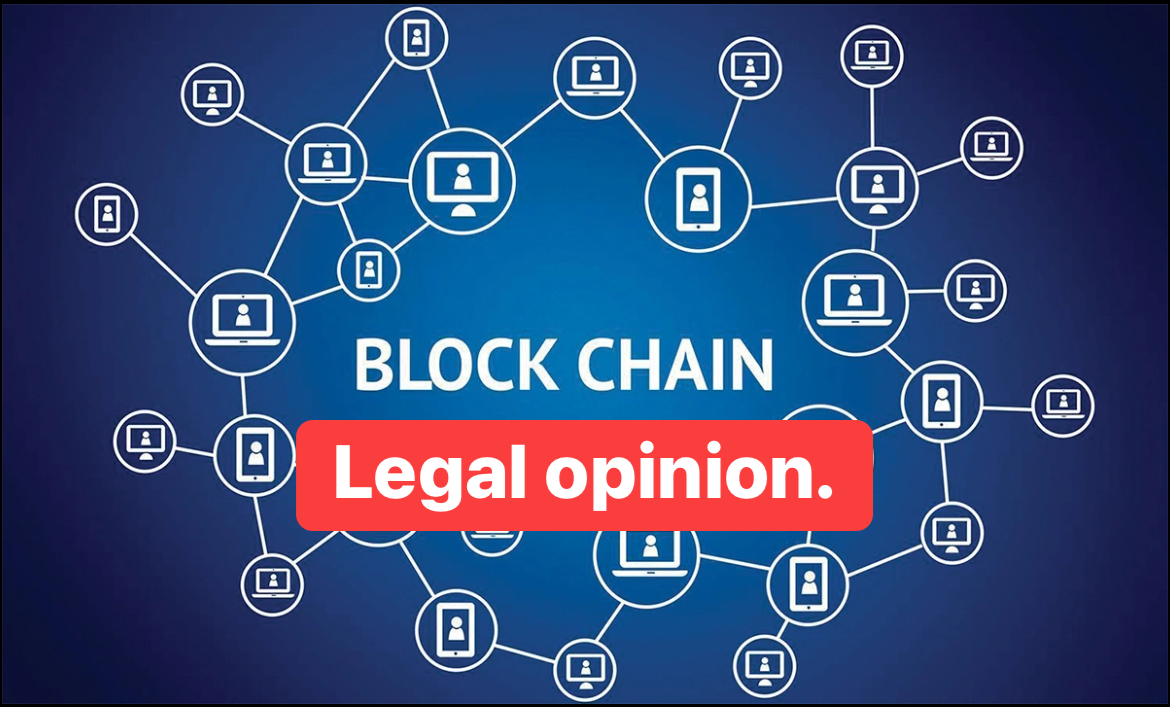
Why a legal opinion for your blockchain project it is extremely important?
1.Introduction.
A legal opinion concerning WEB3 projects is a legal tool that allows developers, investors and blockchain executives to obtain a qualified third-party opinion on the subject matter, object, financial and technological substance, as well as the legal specifics of the creation of a particular blockchain project. This opinion is a professional, legal document prepared by a competent legal professional on each specific issue or problem subject to the commissioned study.
Prior to marketing any particular blockchain project, the parties should carefully consider the nature and extent of its financial and technological substance, as well as the legal issues related thereto, in order that this analysis will serve to guarantee the rights of each participant in such investment.
- Details
- Written by Atanas Kostov
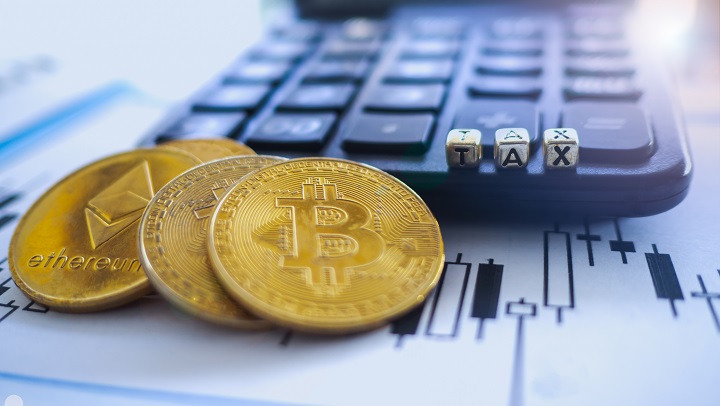
What taxes do we pay on crypto asset transactions in Bulgaria?
In my practice as a blockchain lawyer, issues often arise that are more practical than technological in nature and require knowledge of various areas of civil, tax and criminal law. One of these questions is what taxes do we pay on crypto asset transactions? Here we need to make the natural distinction between crypto transactions carried out by individuals and crypto transactions involving legal entities.
1. Taxes payable on crypto asset transactions by natural persons.
The topic is regulated in the Law on Personal Income Taxes. In Article 33, paragraph 4 of the Income Tax Act it is written as follows:
1.1. The taxable income from the sale or exchange of shares, units, compensatory instruments, investment vouchers and other financial assets, including virtual currencies, as well as from foreign currency trading is determined as the sum of the profits realized during the year, determined for each specific transaction , reduced by the amount of losses realized during the year , determined for each specific transaction, is reduced by 10 percent of costs.
- Details
- Written by Atanas Kostov

Common mistakes made in registration process of trademarks in Bulgaria.
I. Introduction.
In my practice as an intellectual property attorney in Bulgaria, for the last 20 years I have tried to convince many of my clients (individuals and owners of legal entities) that applying for a trademark requires knowledge in detail of a matter that is strictly professional and related to experience, knowledge - and even aesthetics, factors belonging to the sphere of business, law, marketing and art (if you wish). This article is not scientific in nature, but it aims to give you a vision of what not to do and what is useful to do when registering your trademark.
II. Here are the main key points :
1. Do not claim your trademark by yourself. It is true that both the Bulgarian Patent Office and the European Union Intellectual Property Office (EUIPO), Alicante, Spain, offers two very functional sites through which (supposedly at first glance) you can "do the work yourself". This is an illusion. Using a site without problems does not mean that you have chosen the right kind of trademark tо apply (marks can be word, figurative three-dimensional, sound, etc.), does not mean that you have correctly chosen the goods and services to claim and does not mean that doing so will not give rise to various types of legal problems (eg refusal on absolute grounds and opposition due to a similar or identical earlier trademark) which will result in the loss of the fee paid as well as the loss of the trademark itself. Why this is true I will explain in detail in my presentation.
1.1. Most applicants who decide to file a trademark on their own, "because it's easy", decide that they will file a word trademark. To the question "why did you do this", the answer in 99% of cases is "because I didn't feel like making a logo"! The bad news is that since 2010 So far, word trademarks are the weakest legally, since they do not have the so-called "visual distinctiveness", i.e. precisely because they do not have a logo, the user does not perceive them visually.
1.2. Visual distinctiveness is especially important when the do-it-yourselfer has applied for a descriptive trademark. What is this? You can't trademark a bread maker and make it sound like "The most delicious bread" or "Your bread." Why? Because every bread is delicious and every bread belongs to someone. The Trademarks and Geographical Indications Act expressly prohibits such descriptive trademarks and the Bulgarian Patent Office or EUIPO (if the trademark is European) refuses you the trademark on the so-called "absolute grounds for refusal" because the trademark is descriptive under Art. 11, para. 4 of ZMGO. If the mark is descriptive - for example "The Shop near you", but its logo has led to so-called "acquired distinctiveness" and the applicant can prove it, the motive for descriptiveness in the examination of absolute grounds can be overcome. This can of course only be done by a professional in the field of intellectual property, i.e. obviously "you cannot handle this difficult legal problem alone".
2. The trademark must always have a logo!
What has been said so far leads us to the conclusion that the trademark must always have a logo, i.e. it must be a so-called "figurative trademark". Figurative marks are those that represent an image, i.e. they are a combination of the word element - for example "Coca Cola" and the way in which that word element looks figuratively. As I have already explained, visual distinctiveness is very important. In the past (before 2010) black and white tardemarks covered all the colors of the rainbow as protection, but today you can only claim specific colors that are the subject of the logo - they do not cover all other colors and combinations. No. Only cover the specific colors requested. For example, if the trademark "Coca Cola" (see fig. 1) is claimed in red and white, these are the protected colors. You then can't use it in orange and green because you end up with the problem of "the applicant is not using his mark as he registered it" and that's grounds for cancellation of the mark because it leads to consumer confusion "which is the brand" - figuratively.
fig.1
There are also so-called "three-dimensional trademarks" - they are also images, but three-dimensional ones, as an example I can give the bottle of "Coca Cola". As an interesting detail, I can also mention that three-dimensional trademarks and industrial designs are actually one and the same thing, as depending on whether the novelty of a design is impaired or not, the registration of a three-dimensional trademark or design is resorted to. These are details that I have explained in an explicit article on the subject and I will not dwell on them here, but you can find it on the pages of our site.
3. Should the brand be abstract or should it mean something?
Most trademarks in the 21st century are abstract - Mozilla, Amazon, Google, Yahoo, Coca Cola, YamamaY, etc., they mean nothing and consist of 5 to 6 letters (characters). Why? As you already understood, this avoids the problem of descriptiveness, creating the necessary interest - figuratively and meaningfully - in the brand. I will give an example of one of the most famous brands of women's underwear so that I can be understood correctly.
fig.2 
I really like to give an example with the trademark "YamamaY" (see fig. 2) for the "abstractness" criterion. If you look at the image you will see that a careful analysis of the arrangement of the syllables leads to the conclusion that inside-out and outside-in are mirror images. The brand has a center and it is the letter "a". Also, the trademark has the word "mom" in it, because every cool chick in underwear, after a lot of "wow" or "ay, ay"... at some point becomes "mom" - clever, right? Do you understand how many layers there are in this brand - mirroring, sex, motherhood, femininity? Still thinking you can do "this easy job yourself"? Also, the brand is red. In the first year of law, professor Daniel Valchev once taught us that red as a color is a sign that "there are prostitutes" (a symbol from Roman times), and therefore, red is the color for attention at traffic lights, emergency, obviously in today's time - at trademarks. This color is naturally associated with roses and femininity. Because of this, some of the top trademarks in fashion and industry contain it.
On the other hand, I can say that even abstract trademarks can be woven into some meaning. Back in the day, my mother had a company called "ERKOER", which is a combination of the first syllables of her and my surname: Erendzhikova , Kostov , Erendzhikova , and the clever approach to these initial syllables leads to the mentioned "ERKOER". This is also a correct approach, albeit very simplistic semantically.
4. The "trademark plus company name, plus domain" rule.
Always follow this rule in the 21st century. I will explain in detail why again with an example. The company "Dir.bg" JSC owns the trademark "Dir.bg" and obviously the domain Dir.bg (see fig.3). The Bulgaria commercial law act in its art. 7, para. 5 says that a company name cannot be identical or similar to a protected trade mark unless the trader has rights to it. This means that the earlier trademark can attack the later identical or similar company name, requesting its deletion from the trade register in favor of the real owner of the brand. The Law on Trademarks and Geographical Indications says the same thing, that the earlier company name can be grounds for invalidation of the later applied trademark in favor of the real owner of the earlier company name - argument from Art. 36, Paragraph 3, Item 2, letter "b" of the ZMGO, as the earlier company name is also an earlier unregistered word trademark in the context of Art. 12, paragraph 4 of the ZMGO.
fig.3 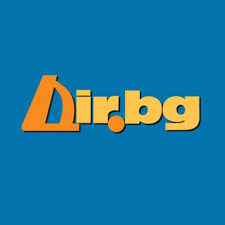
Last but not least, the General Terms and Conditions of "Register.bg" EOOD - the company that administers the sale of national first-level domains, establish the rule that the earlier trademark, respectively the earlier company name, can become grounds for revocation of already registered domain - argument from Article 11.4.1 of the General Terms and Conditions of "Register.bg" EOOD.
This detailed reasoning is the reason for the rule "trademark plus company, plus domain", because one can always override the other if it's earlier. I explain all this in such detail to convince you that if you properly structure your business and your intellectual property from the beginning, you will protect yourself from strange, very unexpected and sometimes quite unpleasant legal, bona fide or not effects aimed at this "thing of yours" - company name, trademark or domain, be taken away from you. Applying the said rule immediately and in time will virtually cut off any such possibility.
The details of trademark registration can be numerous and involve various marketing, business, legal and technical complications that ultimately lead to the loss of the trademark applied for. However, if you follow these few simple rules in applying for a trademark, this process can turn out to be successful, of course, if you use the services of the right professional.
Author: Mr. Atanas Kostov - attorney at law
More details on the topic "registration and proper marketing, business and technical construction of a trademark" can be obtained here: This email address is being protected from spambots. You need JavaScript enabled to view it.
- Details
- Written by Atanas Kostov
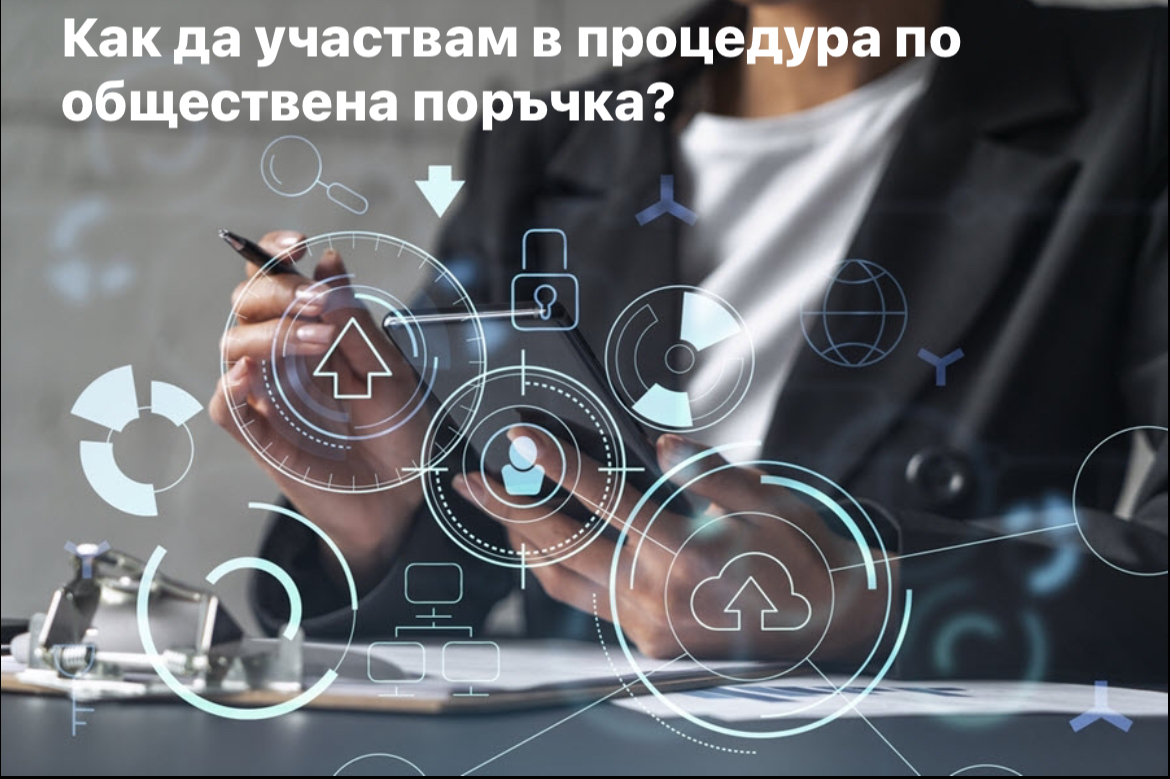
How do I participate in a public procurement procedure in Bulgaria?
1. General provisions.
The Public Procurement Act is tasked with creating legal guarantees for the development of free and fair competition, i.e. to provide an opportunity for all legal entities to participate in the procedures and for the competition between them to take place on the basis of objective market criteria.
The contracting authority makes a decision to open a procedure for awarding a public order according to its needs, which this order should satisfy in compliance with the principles and conditions laid down in the PPA. For this purpose, the Law grants the right to every business entity as an interested party to participate in procurement procedures, according to its financial, technical and resource capacity. This collaboration of available opportunities of business entities should be relevant to the requirements set by the contracting authority.
2. "Interested person" in the sense of the ZOP .
In §2, item 14 of the DR of the ZOP, a definition of the term "Interested person" is given: "any person who has or had an interest in receiving a certain public contract and who has been or may be harmed by the alleged violation". The essence of this concept is especially important in cases of contesting the contracting party's act, in accordance with the provision of Article 198, item 1 of the Civil Code. In these cases, each "interested person" must state the circumstances in his complaint , on which he bases his status as an interested party, as well as applies to it evidence of the stated circumstances . § 2, item 14 of the DR of ZOP , do not have a legal interest in appeal.
- Details
- Written by Atanas Kostov

How to prepare a public procurement in the healthcare sector?
In this presentation, we will outline the main steps that should be implemented in a procedure for awarding a public contract under Article 18 of the Public Procurement Act, so that it is prepared, organized and conducted in accordance with the rules of the Law on Public Procurement and its Regulations implementation and other relevant legal acts in force.
1. General conditions.
1.1. Legal term "Public contracting authority" of public procurement!
Public contracting authorities are defined in Art. 5, para. 2 of the ZOP. This also includes state and municipal medical institutions [1] , whose relevance and applicability to the concept of "public contracting authority" is complemented by the definition of "Public organization" given in §2, item 43 of the Transitional and Final Provisions of the Law on Public Procurement In continuation of what has been said, state and municipal medical institutions are public law organizations that acquire the status of "public contracting authority", as they are created with the specific purpose of satisfying needs of general interest; b) they do not have industrial or commercial in nature; c) are financed with more than 50 percent by state, territorial or local bodies or by other public law organizations; or have a management or supervisory body, the majority of the members to which they are appointed by a public contracting authority under Art. 5, para. 2, items 1-14.
- Details
- Written by Atanas Kostov

How to prepare a public order for the delivery of food in educational and social institutions?
The precise and comprehensive application of the legal doctrine in the sphere regulating healthy nutrition in children's institutions and schools should be a priority of every institution in the State. In continuation of what has been said, public contractors spending budgetary funds to provide food products in state and municipal establishments should be extremely precise when preparing a procedure for awarding public procurement in this area. We believe that the requirements for the participants, the criteria for their selection, the technical specifications, the draft contract, as a set of documents that the contracting authority prepares in accordance with the Public Procurement Act, should correspond to the maximum extent to the purpose for which they are held - providing quality healthy food in the facilities for social services.
For this purpose, we will outline the main steps to be applied in a procedure for awarding a public contract under Article 18 of the Public Procurement Act, so that it is prepared, organized and conducted in accordance with the rules of the Public Procurement Law and the Regulations for its implementation and other relevant legal acts in force in the field of food and their quality characteristics.
- Details
- Written by Atanas Kostov
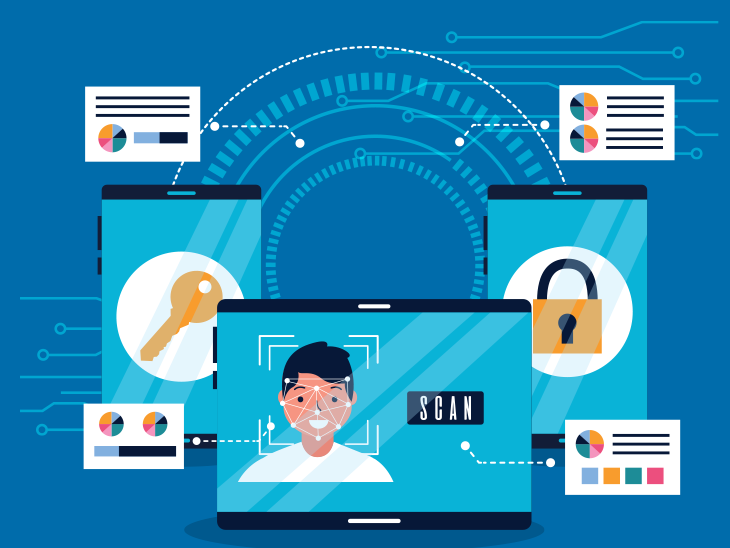
What is the 'KYC' protocol and why it is the key to the blockchain ecosystem?
1. Introduction.
As a lawyer professionally engaged in blockchain consulting, I must point out that one of the most important things for a real and legitimate crypto project is the initial identification of its users. You know that regardless of whether you use the service of a crypto exchange or simply register a hosted wallet (online wallet) on a given platform, you are always required to identify yourself as a person. This is the automatic technological protocol "know your customer" (from English "know your customer" or "KYC"). It, together with the other key protocol for laundering dirty money (known as "AML" from the English "anti money laundering") are normatively mandatory for every legal crypto project, and this view was laid down in the recommendations that DANS recently published on the topic.
KYC operations have evolved from a rudimentary process into a strict and meticulous practice overseen by the regulatory authorities of every EU member state, including the US. In the past, the manual (paper) and digital KYC process was not cheap, fast and customer-friendly, with large financial institutions spending close to $500 million annually on the KYC process. KYC regulations are becoming increasingly strict around the world, so these costs are expected to rise gradually to staggering amounts.
- Details
- Written by Atanas Kostov
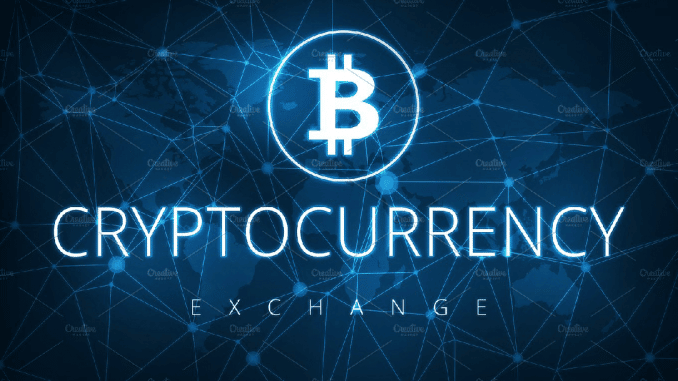
How to create your own crypto exchange in Bulgaria?
The creation of a financial project related to the trading of crypto-currencies in Bulgaria is a process that hides several detailed questions, having for its object specific legal, financial and technological aspects. Crypto exchanges are digital market, financial platforms that allow users to buy and sell cryptocurrencies. Cryptocurrency exchanges may also support trading in other digital assets, such as non-fungible tokens (NFTs). Cryptocurrency exchanges function similarly to traditional exchanges with two important exceptions: there is no physical presence in trading, i.e. crypto exchanges are strictly digital markets. Cryptocurrency exchanges are similar to digital money markets, except that the majority of supported currencies are cryptocurrencies. Crypto exchanges also support a number of fiat (issued by governments) currencies, and trade in so-called stable coins (from the English "stable coins"), which are one-to-one with a specific fiat currency (for example, the crypto currencies USDT and USDC are one-to-one one with dollars).
In order to start the implementation of such a project, the legal and regulatory framework, the necessary licensing regimes and the means of collaboration with the legal entities that would trade cryptocurrencies, including their creators, should be analyzed in detail. As I already mentioned, crypto exchanges are blockchain platforms through which cryptocurrencies are traded, and they are also a technological tool that provides liquidity in the market, but also legal and software security, in order to guarantee the transfer of funds and unification in a common instrument of demand and the supply of blockchain financial assets. There are different types of crypto exchanges – crypto brokers, centralized exchanges and decentralized exchanges depending on the technological, financial, regulatory and legal approach of each such project.


